A Couple on Edge
By Dr. Mehmet Oz
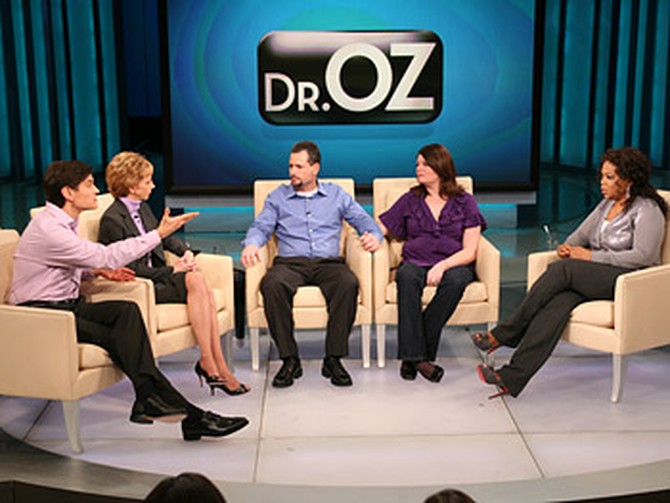
In January 2008, Dr. Oz challenged eight longtime smokers to quit their addiction with a four-step plan. In a follow-up a month later, he heard how three of them were fairing in their new smoke-free world. One of the challengers, Wendie—who had admitted smoking in the car with her 5-year-old daughter, Bailie—explained that she was experiencing some difficulty because her husband, Tony, continued to smoke.
Dr. Oz thought there was more to the story, so he made an emergency house call, visiting Wendie and Tony at home. There, he discovered a tense situation. Both Tony and Wendie were dealing with years of emotional pain, were constantly fighting in front of their daughter and used cigarettes to deal with their stress. He called their house a "powder keg" ready to explode.
To help defuse it, Dr. Oz called on his friend and colleague, life coach Martha Beck. She tried to uncover the roots of Wendie and Tony's cigarette addictions—especially Wendie fearing her desire to run away and Tony fearing being abandoned. Martha helped them develop strategies to confront their fears in positive ways.
Dr. Oz thought there was more to the story, so he made an emergency house call, visiting Wendie and Tony at home. There, he discovered a tense situation. Both Tony and Wendie were dealing with years of emotional pain, were constantly fighting in front of their daughter and used cigarettes to deal with their stress. He called their house a "powder keg" ready to explode.
To help defuse it, Dr. Oz called on his friend and colleague, life coach Martha Beck. She tried to uncover the roots of Wendie and Tony's cigarette addictions—especially Wendie fearing her desire to run away and Tony fearing being abandoned. Martha helped them develop strategies to confront their fears in positive ways.

Dr. Oz told Wendie that in her first medical screenings, they found a shadow on her lung scan. He asked her to submit to a second screening with a specialist, Dr. Austin of NewYork-Presbyterian Hospital.
"If you weren't a smoker, we wouldn't worry that much about that," Dr. Oz says to Wendie. "But because you're a smoker, these kinds of shadows really concern us, and we started thinking about lung cancer. ... I'm hoping that's not the case, but I don't want to mislead you. If I thought it was nothing, we wouldn't do the scan."
After running the new tests, Dr. Austin has good news. "Her lungs are gorgeous; everything is fine," he says. "You had a little infection in the lung, and it's gone."
When she gets the results, Dr. Oz says he is struck by Wendie's reaction. "You just seemed numbed," he says. "I don't think that you either took it seriously or really were able to grasp the magnitude of how this changed your life. Instead of having to cope with lung cancer as a young woman, you actually had a whole second chance."
"I know how to disassociate and not be with myself at times," Wendie says. "That's how I cope. It's a survival skill for me."
Wendie says she uses this coping mechanism in her marriage too.
"If you weren't a smoker, we wouldn't worry that much about that," Dr. Oz says to Wendie. "But because you're a smoker, these kinds of shadows really concern us, and we started thinking about lung cancer. ... I'm hoping that's not the case, but I don't want to mislead you. If I thought it was nothing, we wouldn't do the scan."
After running the new tests, Dr. Austin has good news. "Her lungs are gorgeous; everything is fine," he says. "You had a little infection in the lung, and it's gone."
When she gets the results, Dr. Oz says he is struck by Wendie's reaction. "You just seemed numbed," he says. "I don't think that you either took it seriously or really were able to grasp the magnitude of how this changed your life. Instead of having to cope with lung cancer as a young woman, you actually had a whole second chance."
"I know how to disassociate and not be with myself at times," Wendie says. "That's how I cope. It's a survival skill for me."
Wendie says she uses this coping mechanism in her marriage too.
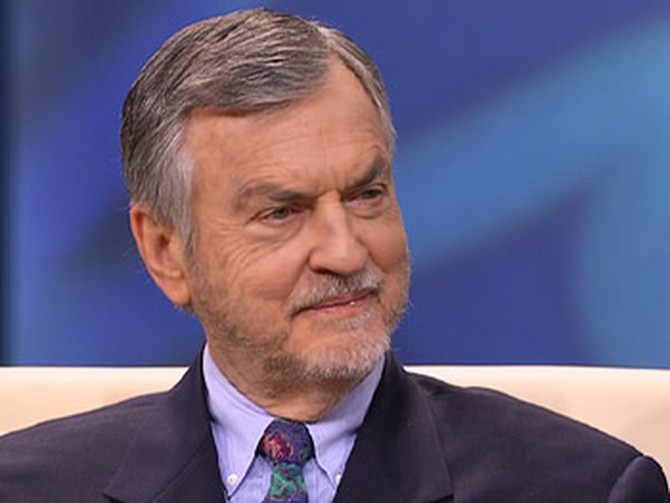
To help further help Wendie and Tony fix their relationship, Oprah calls on relationship therapist Dr. Harville Hendrix. "I think you would have such amazing breakthroughs that it would absolutely change the way you see each other and yourself," Oprah says. "He's the best I've ever seen."
Dr. Hendrix is the founder of the Imago Relationship Theory, which he says is a way to transform an "unconscious relationship" into a "conscious partnership."
"[Imago] helps couples understand how the problems they have in a relationship in the present are connected to issues that are left over from childhood," he says. "Most of the stuff that's going on in a relationship has its roots in the past—we say about 90 percent in the past, and it's triggered by about 10 percent of the behaviors in the present."
Dr. Hendrix is the founder of the Imago Relationship Theory, which he says is a way to transform an "unconscious relationship" into a "conscious partnership."
"[Imago] helps couples understand how the problems they have in a relationship in the present are connected to issues that are left over from childhood," he says. "Most of the stuff that's going on in a relationship has its roots in the past—we say about 90 percent in the past, and it's triggered by about 10 percent of the behaviors in the present."
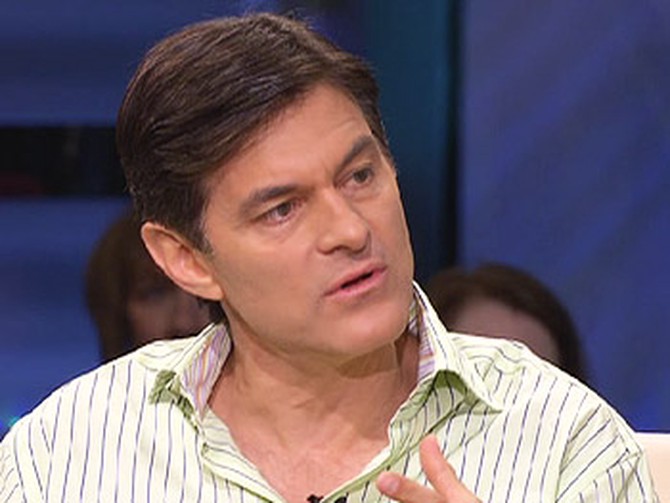
Contrary to our culture's model, Dr. Hendrix says intimate relationships are not really about romance. "It's an amazing thing that you're drawn together, in the romantic phase, to somebody who's similar to the worst traits of all the negative traits combined of all your caretakers," he says. "A romantic phase is an anesthesia. It's like nature is keeping you from knowing what it's about to set you up to do, which is to heal each other's childhood wounds."
Dr. Oz says Dr. Hendrix's theory has medical backing. When you are first in love, he says your body releases natural chemicals like dopamine, which is related to addiction, and oxytocin. "That makes you feel love and warm and cuddly," Dr. Oz says.
The romantic phase—with its natural high from chemicals—begins to wear away after a few years, Dr. Oz says. "Which sort of makes sense because that way the child is old enough that if the pair splits, they can make it," he says. "That's why I think you have to reinvent the marriage every five to seven years. You've got to reconnect."
Dr. Oz says Dr. Hendrix's theory has medical backing. When you are first in love, he says your body releases natural chemicals like dopamine, which is related to addiction, and oxytocin. "That makes you feel love and warm and cuddly," Dr. Oz says.
The romantic phase—with its natural high from chemicals—begins to wear away after a few years, Dr. Oz says. "Which sort of makes sense because that way the child is old enough that if the pair splits, they can make it," he says. "That's why I think you have to reinvent the marriage every five to seven years. You've got to reconnect."

When Tony and Wendie first met with Dr. Hendrix, he says he felt they were tense about meeting him. "There was a sense that they were not connected," he says.
Dr. Harville's first exercise was to find out how Tony and Wendie describe their dream marriage, using an Imago technique called "mirroring." In this exercise, one partner is supposed to let the other be heard without judgment. "Most of the time, we talk and we don't listen," he says. "When you mirror, you have to sort of quiet your own mind so you can let in what's coming from the other person. Oftentimes, that's a real shock because the person you've been living with you're now listening to. You discover you've been living with somebody you didn't even know."
Tony speaks first in the mirroring exercise. "I want you to be able to tell me everything. I want to be able to tell you everything," he says. "I want to be available for you. Even if I don't know how to fix it , I just want to hear it. I want you to be able to come to me with anything that's on your mind."
When Wendie repeats back what Tony says, he says she has understood his meaning. "Exactly. Beautiful. I'm loving this!" Tony says. "We just never communicated like that before."
Dr. Harville's first exercise was to find out how Tony and Wendie describe their dream marriage, using an Imago technique called "mirroring." In this exercise, one partner is supposed to let the other be heard without judgment. "Most of the time, we talk and we don't listen," he says. "When you mirror, you have to sort of quiet your own mind so you can let in what's coming from the other person. Oftentimes, that's a real shock because the person you've been living with you're now listening to. You discover you've been living with somebody you didn't even know."
Tony speaks first in the mirroring exercise. "I want you to be able to tell me everything. I want to be able to tell you everything," he says. "I want to be available for you. Even if I don't know how to fix it , I just want to hear it. I want you to be able to come to me with anything that's on your mind."
When Wendie repeats back what Tony says, he says she has understood his meaning. "Exactly. Beautiful. I'm loving this!" Tony says. "We just never communicated like that before."
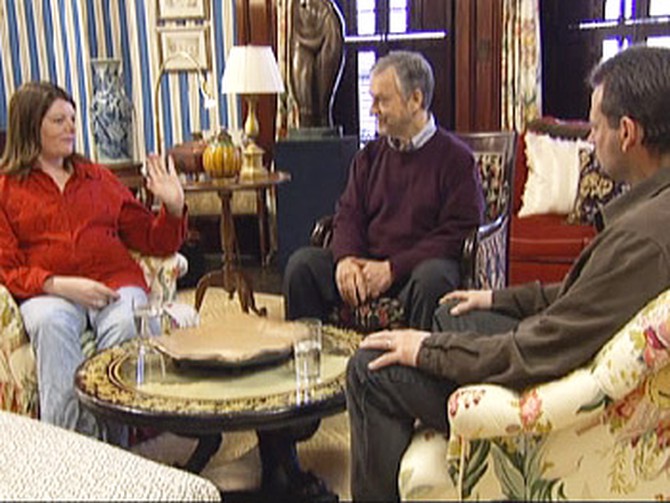
Wendie takes her turn sharing her feelings. "I get frustrated when you don't make eye contact with me when I'm talking to you about something," she says. "When you don't make eye contact with me, I don't feel important. I feel unheard. When I feel unimportant and not heard, it reminds me of when I was little, and I didn't have a voice. If I feel unimportant and not heard, I'm afraid that I'm going to check out. I'm going to leave. I'm afraid that I'll run away."
Dr. Hendrix asks Wendie to clarify—run away inside or run away outside?
"Run away inside," she says. "Like I'll continue to numb. I just don't want Bailie to deal with life the way that I'm dealing with it. I'm afraid that I'm going to die if I keep on doing this to myself. I'm going to die, and I'm not going to be there for Bailie anymore."
Dr. Hendrix asks Wendie to clarify—run away inside or run away outside?
"Run away inside," she says. "Like I'll continue to numb. I just don't want Bailie to deal with life the way that I'm dealing with it. I'm afraid that I'm going to die if I keep on doing this to myself. I'm going to die, and I'm not going to be there for Bailie anymore."
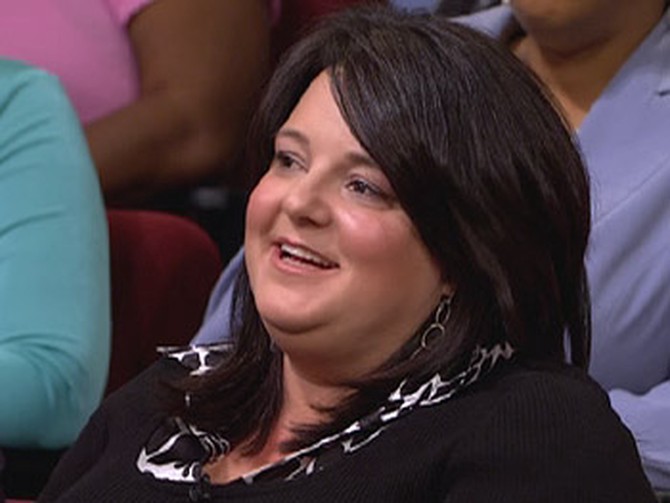
It seems as if Tony and Wendie are having a breakthrough, but the couple soon hits a wall. Oprah Show producer Leslie is suspicious. "When she said 'numb' and 'die,' I was sitting there waiting for Harville to press her," Leslie says. "But Harville's therapy is so methodical, and it's a slower process, and it really works. But I was sitting back there saying, 'What are you talking about? What does that mean?' I knew that I had to ask her after the session."
Leslie gets the chance to talk to Wendie and asks her what she meant when she said she would numb herself. "That's what I've been trying to avoid talking about this whole time," Wendie says. "I don't want to go there."
Wendie calls Leslie a couple days later and divulges what she has been hiding.
Leslie gets the chance to talk to Wendie and asks her what she meant when she said she would numb herself. "That's what I've been trying to avoid talking about this whole time," Wendie says. "I don't want to go there."
Wendie calls Leslie a couple days later and divulges what she has been hiding.
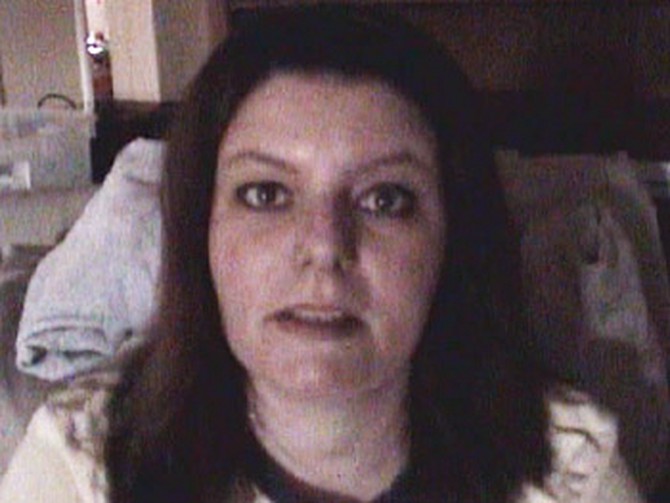
After returning home from the counseling session with Dr. Hendrix, Wendie decides to tell more than just Leslie. She sets up her own video camera and sits down to reveal what she has been hiding all along. "I'm just recording about what I shared with Leslie a few days ago," Wendie says. "I confessed to her that I was numbing—and the way that I was numbing was with pain medication. I guess the reason why I wanted to tell her is because I've been kind of dancing around it and saying it in so many words but not being able to completely come out with it."
Wendie says she was first prescribed pain medication for her Caesarean when Bailie was born. Since then, she has been abusing OxyContin to numb her internal pain. "I think the thing that I struggle with the most is forgiving myself—that gets me stuck," Wendie says. "The more that I hate myself, and the more that I feel that I'm not worth it, the more that I use to try to heal that pain."
Although she wasn't planning on revealing her secret, Wendie says she decided not to take the easy way out. "I was tired of holding it in," she says. "It needed to come out."
Wendie says she was first prescribed pain medication for her Caesarean when Bailie was born. Since then, she has been abusing OxyContin to numb her internal pain. "I think the thing that I struggle with the most is forgiving myself—that gets me stuck," Wendie says. "The more that I hate myself, and the more that I feel that I'm not worth it, the more that I use to try to heal that pain."
Although she wasn't planning on revealing her secret, Wendie says she decided not to take the easy way out. "I was tired of holding it in," she says. "It needed to come out."
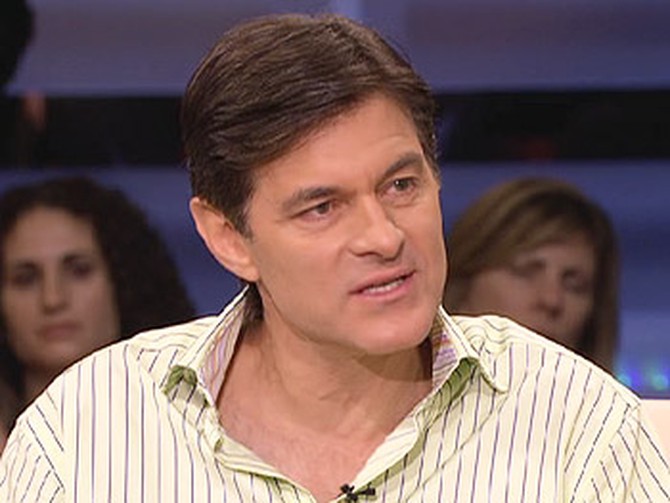
How did Dr. Hendrix and Dr. Oz not notice signs of Wendie's addiction to OxyContin? Dr. Hendrix says there is a reason he didn't push Wendie to say more than she wanted during their session. "I didn't say it because at the point of the time, I was sensing there was something that was being hidden. I know when there's a defense, if you push against the defense, the defense gets stronger."
Dr. Oz tells Wendie he is kicking himself over the clues he missed. He says he thinks the spot on her lung that required a CT scan could have been caused by her abuse of OxyContin, which acts as a cough suppressant. "I bet you were suppressing your ability to clear fluid from your lungs," he says. "When [lungs] get wet, because you're not clearing them, they get pneumonia in them. It all made perfect sense."
"I was screaming it out," Wendie says. "Screaming it out as loud as I could without saying it."
"You were screaming, and we weren't listening." Dr. Oz says.
Dr. Oz tells Wendie he is kicking himself over the clues he missed. He says he thinks the spot on her lung that required a CT scan could have been caused by her abuse of OxyContin, which acts as a cough suppressant. "I bet you were suppressing your ability to clear fluid from your lungs," he says. "When [lungs] get wet, because you're not clearing them, they get pneumonia in them. It all made perfect sense."
"I was screaming it out," Wendie says. "Screaming it out as loud as I could without saying it."
"You were screaming, and we weren't listening." Dr. Oz says.
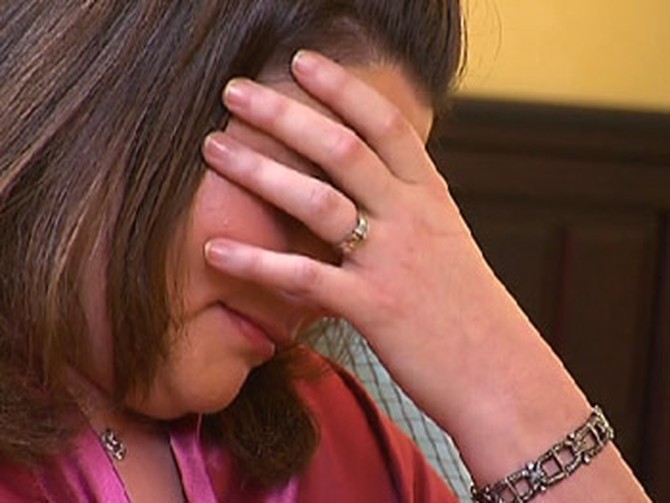
Dr. Hendrix felt that Wendie's confession was a giant step in the right direction and wanted to meet with the couple again two weeks later. Dr. Hendrix begins the session by asking Wendie to tell Tony what needs to change in their relationship.
"What I need from you is for you to be more honest with me, just completely honest with me about big and little things," Wendie says.
Dr. Hendrix asks Wendie to be more specific, but Wendie clams up. "If I say right now, I'll be betraying him, and I can't betray him," she says.
"So if I'm getting this, you can't live the dream marriage without telling me what's bothering you about me," Tony says. "[My secret] is not going to be addressed in this room."
"What I need from you is for you to be more honest with me, just completely honest with me about big and little things," Wendie says.
Dr. Hendrix asks Wendie to be more specific, but Wendie clams up. "If I say right now, I'll be betraying him, and I can't betray him," she says.
"So if I'm getting this, you can't live the dream marriage without telling me what's bothering you about me," Tony says. "[My secret] is not going to be addressed in this room."
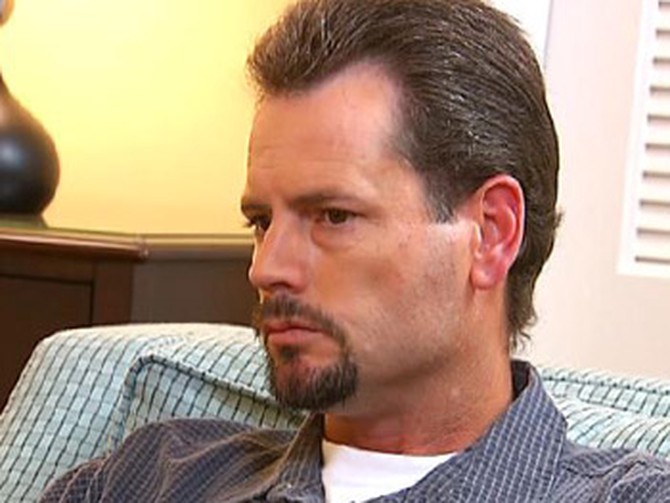
Dr. Hendrix asks Tony if he would be willing to discuss his secret if the television crew would leave the room. "Absolutely," Tony says. Leslie and the rest of the crew file out, leaving Dr. Hendrix, Tony and Wendie alone.
One hour later, the session ends, and Leslie asks Dr. Hendrix if Tony is hiding something. "Yes," Dr. Hendrix says. "He's hiding a big secret, and he sees the secret as his secret. As something that belongs to him, and something that doesn't belong to the public. For Tony to share it with television was something that was clearly not something he was going to do."
One hour later, the session ends, and Leslie asks Dr. Hendrix if Tony is hiding something. "Yes," Dr. Hendrix says. "He's hiding a big secret, and he sees the secret as his secret. As something that belongs to him, and something that doesn't belong to the public. For Tony to share it with television was something that was clearly not something he was going to do."
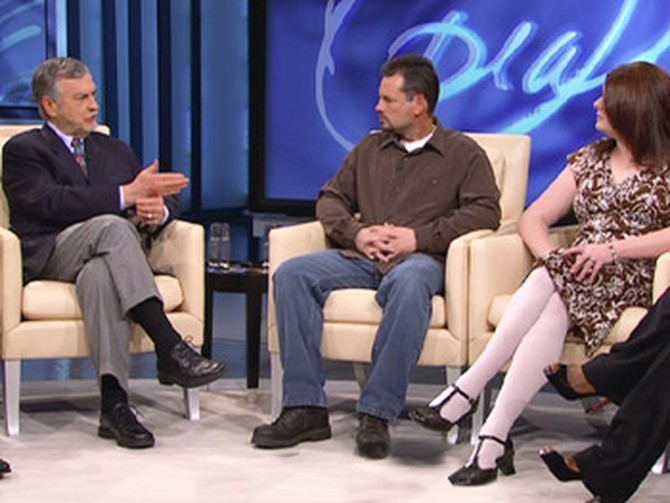
Although he does not want to share it with the world, Tony says talking to Dr. Hendrix helped and his communication with Wendie has improved. "It's productive communication now," Tony says. In addition, the couple say they have been arguing less in front of their daughter, Bailie. "It's been cut by about 85 percent," Tony says.
Dr. Hendrix tells Wendie and Tony to continue working on their relationship by removing what he says is one of the worst addictions of all—negativity."For one thing, it gives us some of our biggest highs and most sense of power," he says. "That has to go. Replace the negativity with curiosity. Replace it with compassion. Replace it with listening."
Dr. Hendrix also wants Wendie and Tony to continue practicing Imago, which he calls a portable therapy that needs to be practiced both in therapy sessions and at home. "They have a goal of having 21 days in which they do not experience a breakdown in their connection by using the dialogue process," Dr. Hendrix says. "Every time they break down, they've gone back to day number one until they get 21 days of repetition. There's some science in that—once you do anything 21 days, it begins to get integrated into your neural pathways."
Dr. Hendrix tells Wendie and Tony to continue working on their relationship by removing what he says is one of the worst addictions of all—negativity."For one thing, it gives us some of our biggest highs and most sense of power," he says. "That has to go. Replace the negativity with curiosity. Replace it with compassion. Replace it with listening."
Dr. Hendrix also wants Wendie and Tony to continue practicing Imago, which he calls a portable therapy that needs to be practiced both in therapy sessions and at home. "They have a goal of having 21 days in which they do not experience a breakdown in their connection by using the dialogue process," Dr. Hendrix says. "Every time they break down, they've gone back to day number one until they get 21 days of repetition. There's some science in that—once you do anything 21 days, it begins to get integrated into your neural pathways."
Published 06/02/2008
As a reminder, always consult your doctor for medical advice and treatment before starting any program.

